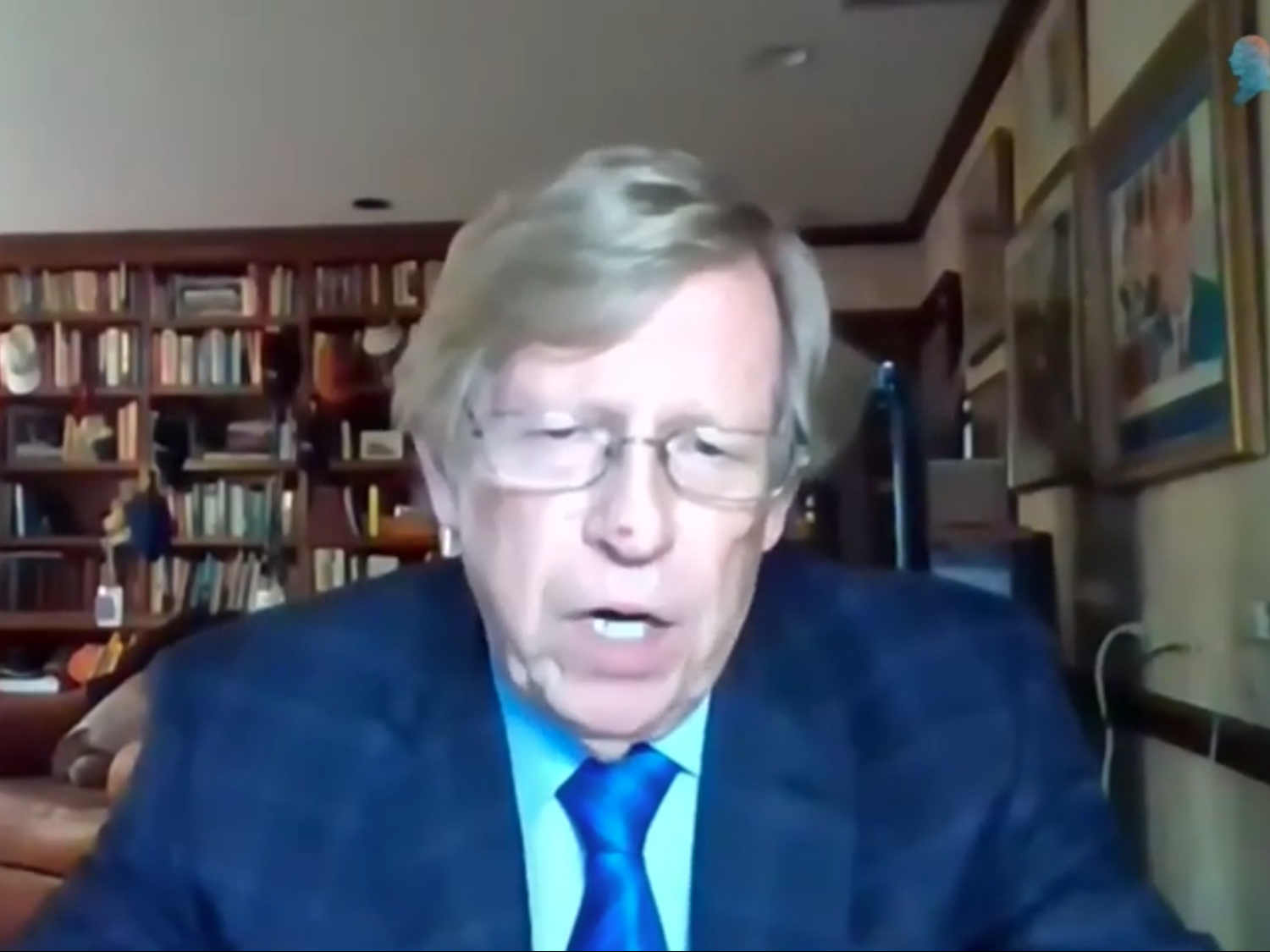
The Federalist Society/YouTube
- Ted Olson, the Republican lawyer who argued on behalf of George W. Bush in the 2000 case Bush v. Gore, spoke at an event for the Federalist Society on Thursday.
- Olson said that he believes the 2020 election is “over” and that America has “a new president,” referring to Joe Biden.
- The 2000 election between Bush and Al Gore came down to a recount in Florida, and the Supreme Court sided with Olson’s arguments, calling off the recount and securing a win for Bush.
- Trump is also waging legal battles over the results of this year’s election, but his arguments have to do with unfounded allegations of voter fraud and not defective ballots, as was the case in Florida in 2000.
- Visit Business Insider’s homepage for more stories.
The Republican lawyer who won Bush v. Gore, the 2000 Supreme Court case that landed George W. Bush the presidency, said on Thursday he believes the 2020 election is “over” and that Joe Biden has won.
Speaking at an event for the conservative Federalist Society on Thursday, Ted Olson said that he believes “the election is over” and that America has “a new president.”
“The Framers, they separated the powers because they knew that individuals would be flawed. They put in lots of checks, and we just experienced one, the election,” Olson said.
“To the extent that the citizens of this country did not like the manner in which President Trump spoke, or the manner in which he threatened people or the manner in which he executed the laws, they exercised their franchise.”
“And we have — I do believe the election is over — we do have a new president,” he said.

ImageCatcher News Service/Corbis via Getty Images
Olson added: "At the end of the day, we are going to have flawed individuals holding that office, and the people ultimately have the responsibility and opportunity to make a change when they feel it's appropriate."
In 2000, Olson argued then-presidential candidate George W. Bush's case before the Supreme Court, successfully convincing the justices to order an end to the Florida recount — an action that ultimately secured the Bush's victory over former Vice President Al Gore, the Democratic presidential nominee.
Olson went on to become the US solicitor general under Bush.
At issue in the 2000 Florida recount was outdated punch card ballots that sometimes made it hard to see what candidate a person had voted for.
For example, one of the issues was the so-called hanging chads — punch cards that had mostly been punched out but were still attached to the ballot.
Gore had wanted these ballots to be analyzed for the voter's intent and then counted, but the Supreme Court ruling brought an end to this process.
The court's 5-4 ruling found that the different way Florida counties tallied votes would violate voters' rights under the Constitution's equal protection clause, according to the Associated Press. In the end, Bush won the state by a margin of 537 votes.
President Donald Trump has also filed several lawsuits with an aim to recount the ballots in this year's election, though his arguments focus on allegations of voter fraud.
However, the Trump campaign has so far not been able to provide evidence of widespread voting issues that would impact the outcome of the race in Trump's favor.
Olson is not the only Bush lawyer who has doubted Trump's attempts to win his legal arguments.
"I have read everything. I have looked at all the claims. None of them raise anything," one of Bush's other lawyers, Barry Richard, told the AP.
"None of them have any credible evidence. It has to affect enough votes to change the result of the election."
Another difference between Trump's lawsuits and Bush v. Gore is the margin of votes, which was much closer in the 2000 election.
"In 2000, Florida was the only state that was contested and neither candidate had 270 (electoral votes) without Florida," Aubrey Jewett, a University of Central Florida political science professor who has written about the 2000 recount, told the AP.
"This time around Biden is over the 270 threshold and Trump would need to see a change in results in multiple states to claim victory."
